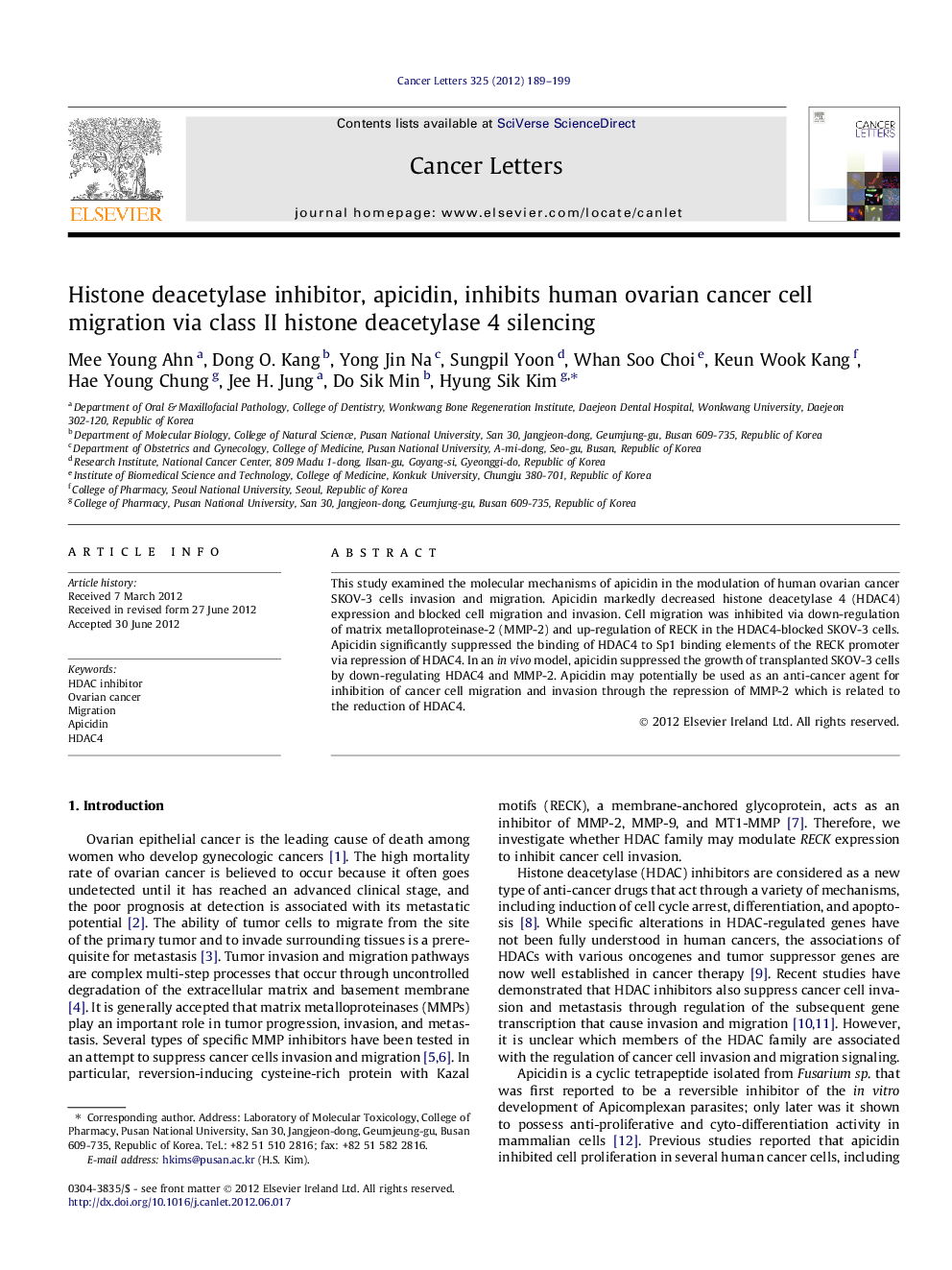| Article ID | Journal | Published Year | Pages | File Type |
|---|---|---|---|---|
| 2113297 | Cancer Letters | 2012 | 11 Pages |
This study examined the molecular mechanisms of apicidin in the modulation of human ovarian cancer SKOV-3 cells invasion and migration. Apicidin markedly decreased histone deacetylase 4 (HDAC4) expression and blocked cell migration and invasion. Cell migration was inhibited via down-regulation of matrix metalloproteinase-2 (MMP-2) and up-regulation of RECK in the HDAC4-blocked SKOV-3 cells. Apicidin significantly suppressed the binding of HDAC4 to Sp1 binding elements of the RECK promoter via repression of HDAC4. In an in vivo model, apicidin suppressed the growth of transplanted SKOV-3 cells by down-regulating HDAC4 and MMP-2. Apicidin may potentially be used as an anti-cancer agent for inhibition of cancer cell migration and invasion through the repression of MMP-2 which is related to the reduction of HDAC4.
► Apicidin markedly blocked ovarian cancer cell migration and invasion through the decrease of HDAC4. ► Cell migration was inhibited via down-regulation of MMP-2 and up-regulation of RECK in the HDAC4-blocked SKOV-3 cells. ► Apicidin suppressed the binding of HDAC4 to Sp1 binding elements of the RECK promoter via repression of HDAC4. ► Apicidin suppressed the in vivo growth of transplanted SKOV-3 cells by down-regulating HDAC4 and MMP-2. ► Apicidin may potentially be used as an anticancer agent for inhibition of cancer cell migration and invasion.
